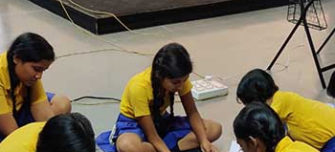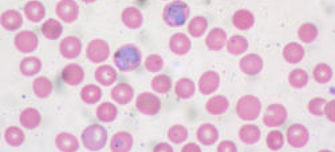Resources and further reading
-
Microbiology Today: Vaccines
In this issue of Microbiology Today we will explore the future of vaccines, including the potential to develop an oral vaccine for typhoid fever; challenges that the malaria vaccine faces, and approaches to advancing DNA vaccine technology.
-
Microbiology Today: Halting Epidemics
Disease outbreaks can have a significant impact on human populations, and they need to be closely monitored and contained to limit their potential spread. Following the outbreaks of the Ebola and Zika viruses in recent years, this issue of Microbiology Today puts a spotlight on the topic of 'Halting Epidemics'.
-
Polio – what are the prospects for eradication?
In this article Microbiology Today Dr Oluwapelumi Adeyemi & Professor Nicola Stonehouse discuss how poliovirus is transmitted, progress in worldwide immunisation, and we will still need to keep vaccinating for many years in order to avoid outbreaks from vaccine-derived virus.
-
Engineering transgenic mosquitoes to prevent disease transmission
In this article in Microbiology Today, researchers share how using population modification and genetic modification, could potentially help prevent disease transmission.
-
Coronavirus journal collection
Coronaviruses are a large family of viruses that can infect a range of hosts. To allow the widest possible distribution of relevant research, the Microbiology Society has brought together articles from across our portfolio and made this content freely available.
-
Comment: Rinderpest
Rinderpest, aka ’cattle plague’, was with us for at least 2,000 years. Now, after many decades of hard work across Africa, the Middle East and Asia, rinderpest has been declared eradicated (in 2011); there has not been a case of the disease, anywhere, for more than 15 years. Learn more about how this disease was eradicated and what lessons can be learnt.
-
Global advocacy and eradicating malaria
Malaria is one of the world’s oldest and deadliest diseases. It has afflicted people for centuries, contributed to the fall of the Roman Empire, and is responsible for millions of deaths. Here we explore aims, progress and steps being taken to help aid efforts to eradicate the disease.
-
Joi Hok! A TB-education initiative in India
After completing her undergraduate degree at University College London, Microbiology Society Champion Sreyashi travelled to her hometown to tackle the stigma and misconceptions surrounding tuberculosis in India. Using traditional art techniques, Sreyashi has established an initiative called 'Joi Hok!' which she has been taking to schools in Kolkata.
-
An ancient remnant inside the malaria parasite
Malaria is caused by protozoan parasites of the Plasmodium genus. These parasites are transmitted via mosquito bites, and several different species are known to infect humans. But look inside a Plasmodium cell itself and you find something rather unexpected – a cellular structure that looks remarkably like a chloroplast.
-
MicroNews July: HPV vaccine
In this first episode of MicroNews, Matt and Laura discuss the HPV vaccine available for boys which could prevent 29,000 instances of cancer in UK men in the next 40 years.
-
HPV in Malawi
In this podcast we spoke to Dr Ramya Bhatia, who travelled to Malawi as part of a research collaboration between Nkhoma Hospital and the University of Edinburgh.
Image credits:
Goodshoot / CreatasNicola Stonehouse & Oluwapelumi Adeyemi
Michelle Anderson
"MERS-CoV" by NIAID is licensed under CC BY 2.0, this image has been modified.
Wendy Love/iStock
Manjurul/iStock
Sreyashi Basu
Ed Uthman on Flickr, under CC BY 2.0
Fedor Kozyr/iStock
Derek Brumby/Thinkstock
jaddingt/Shutterstock













